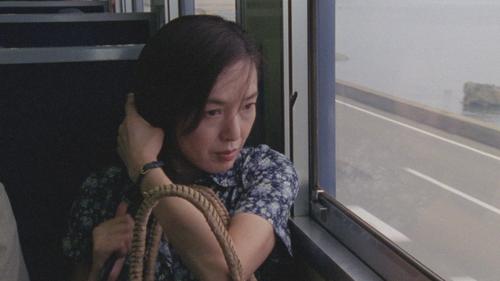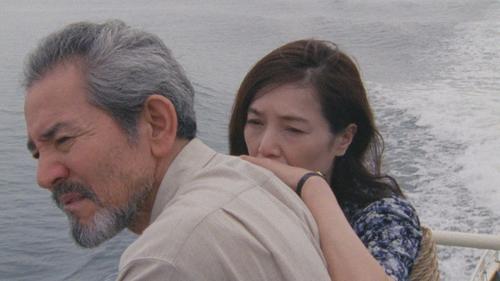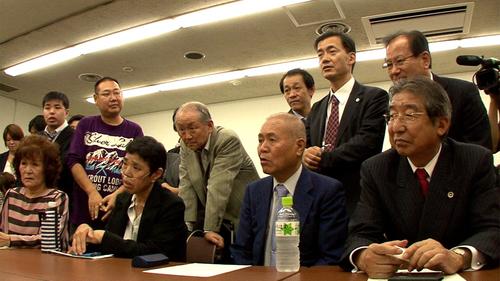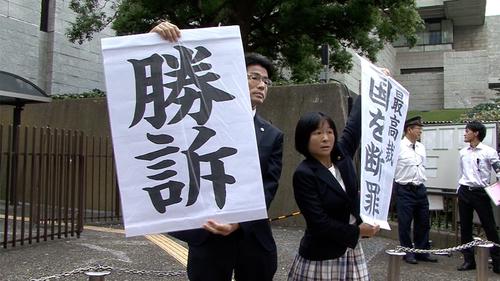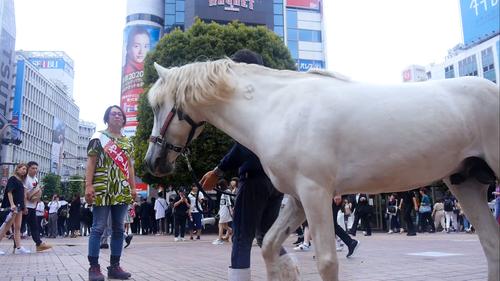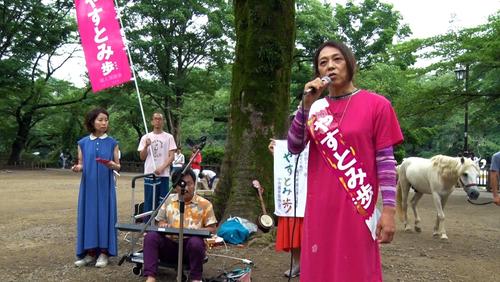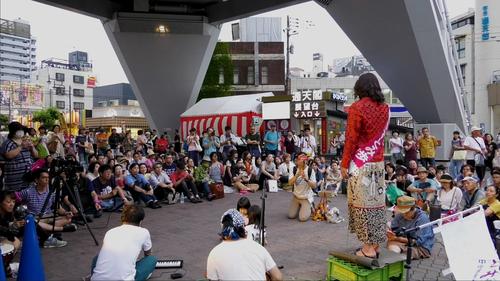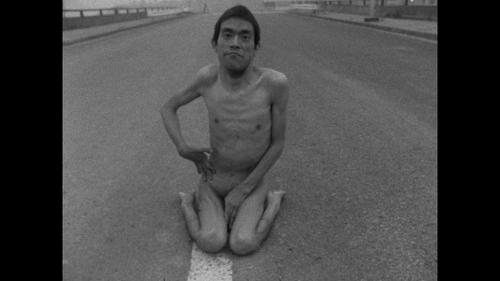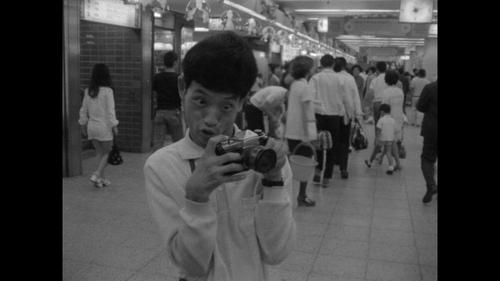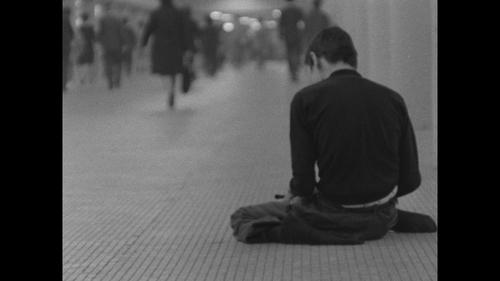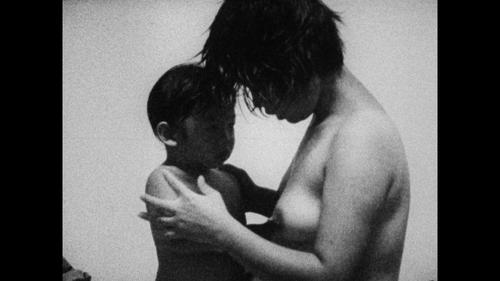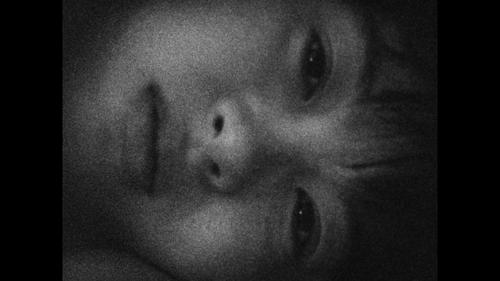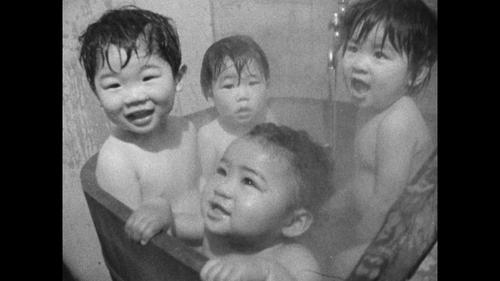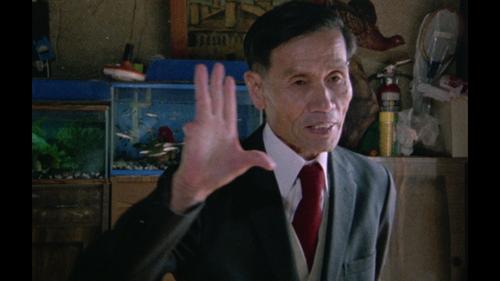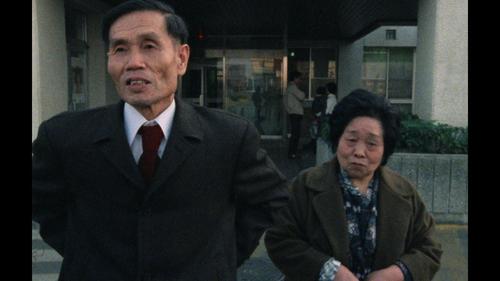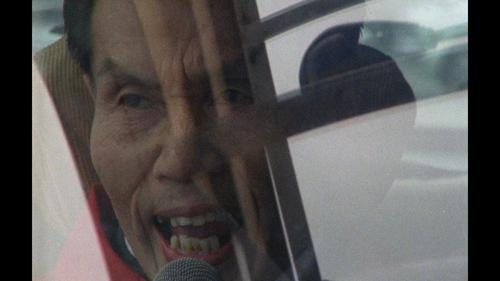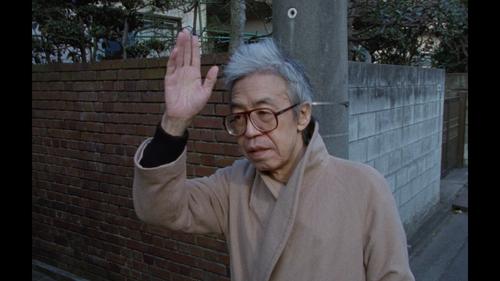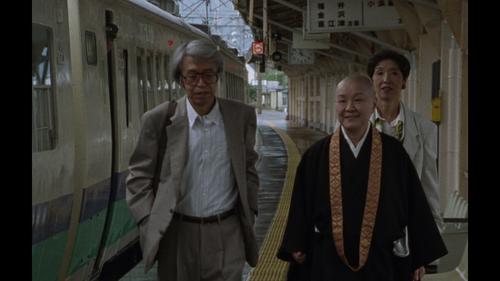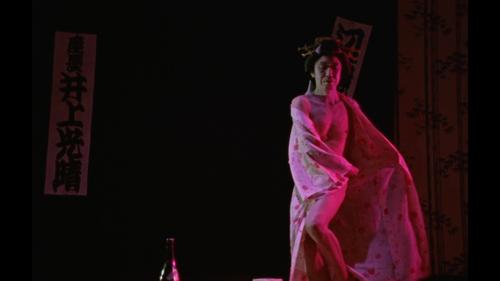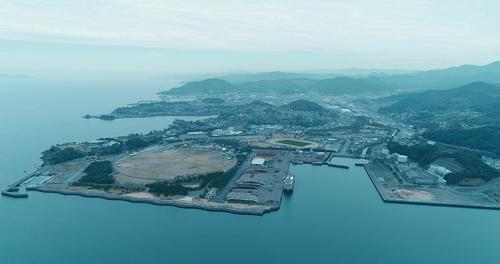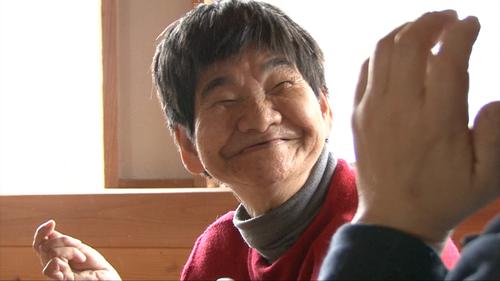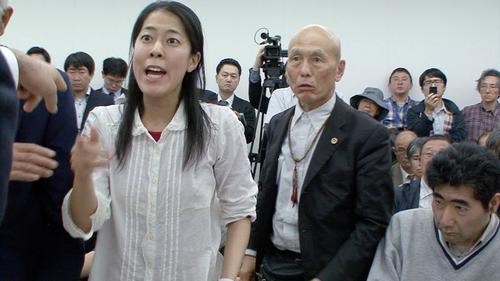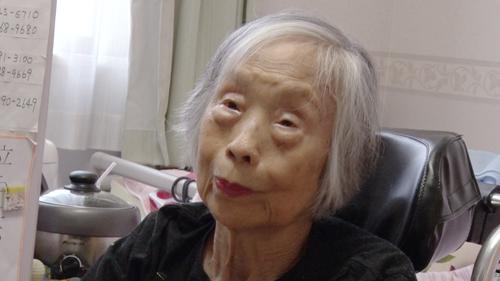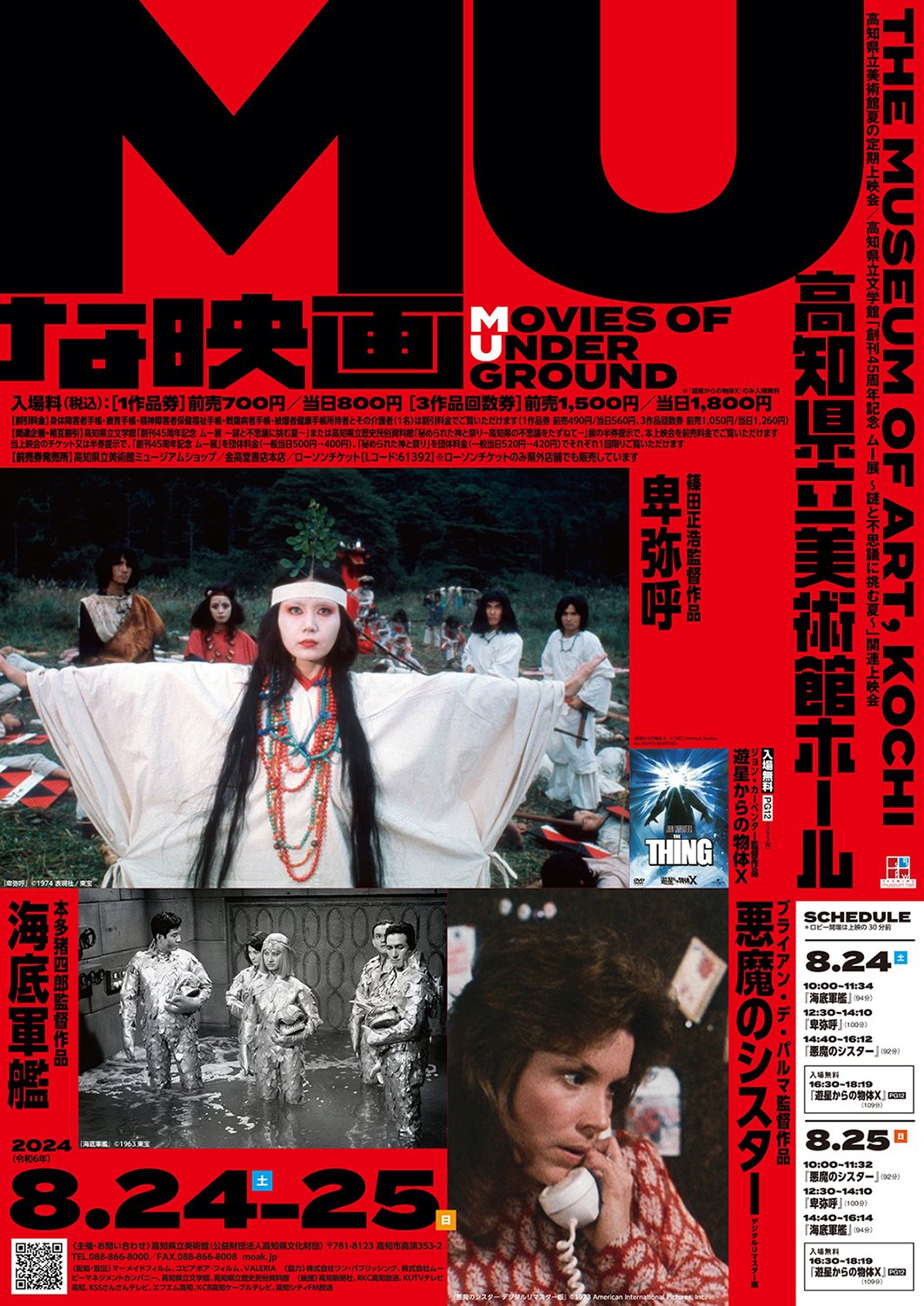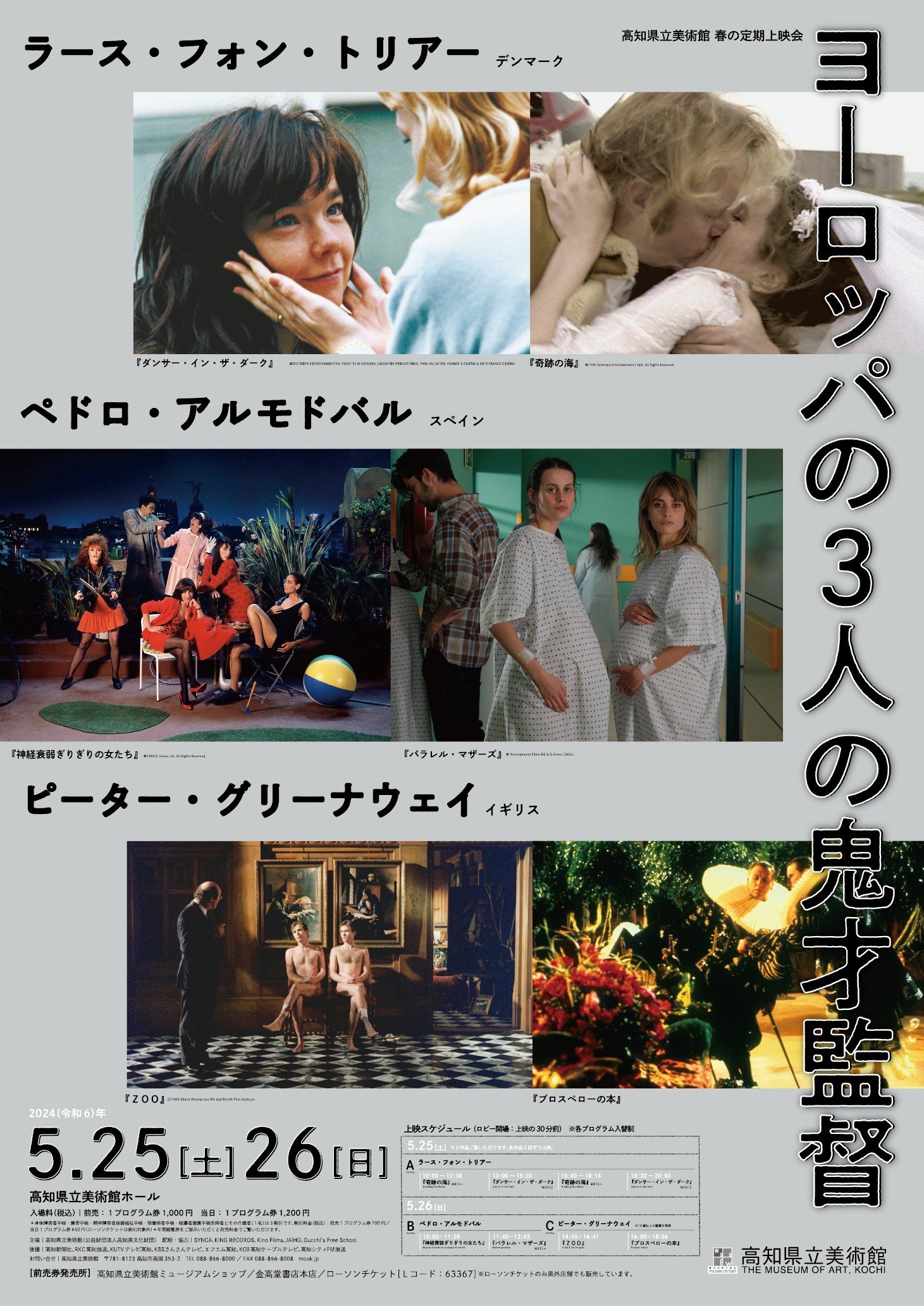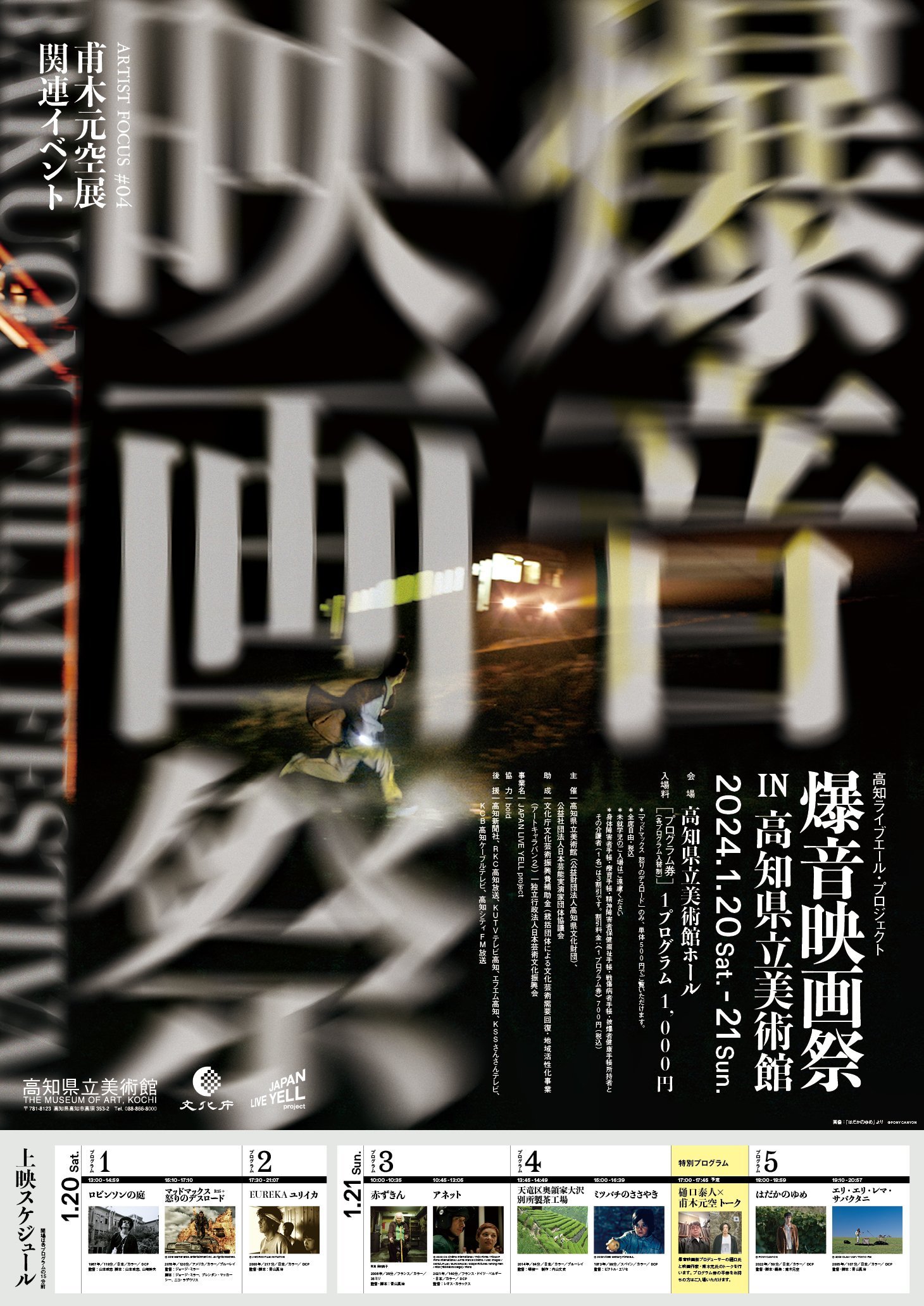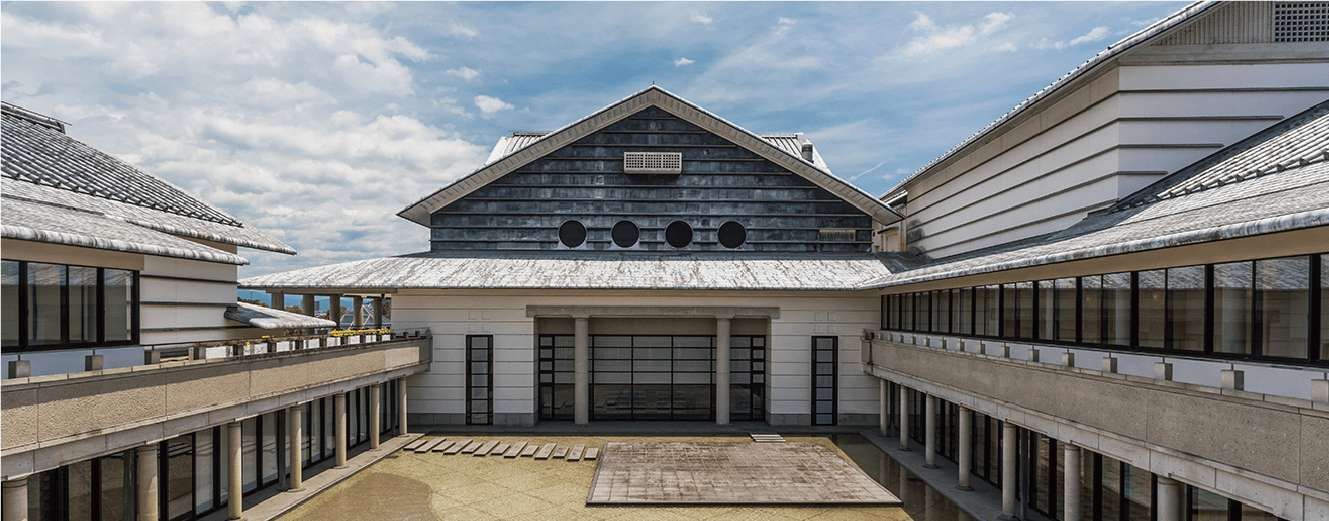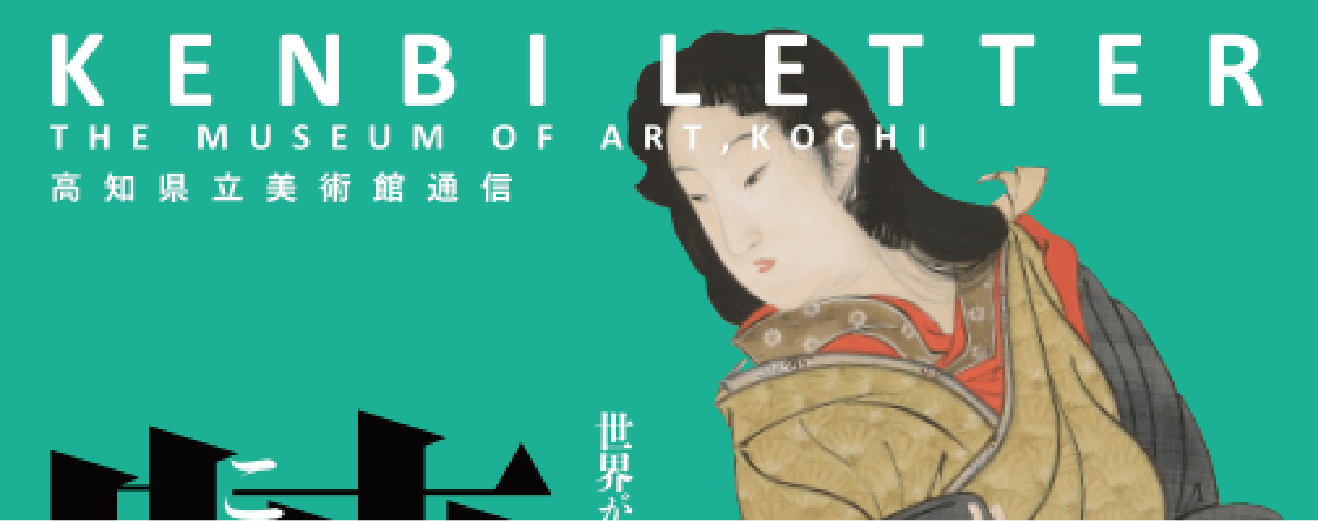PERFORMANCE & FILM
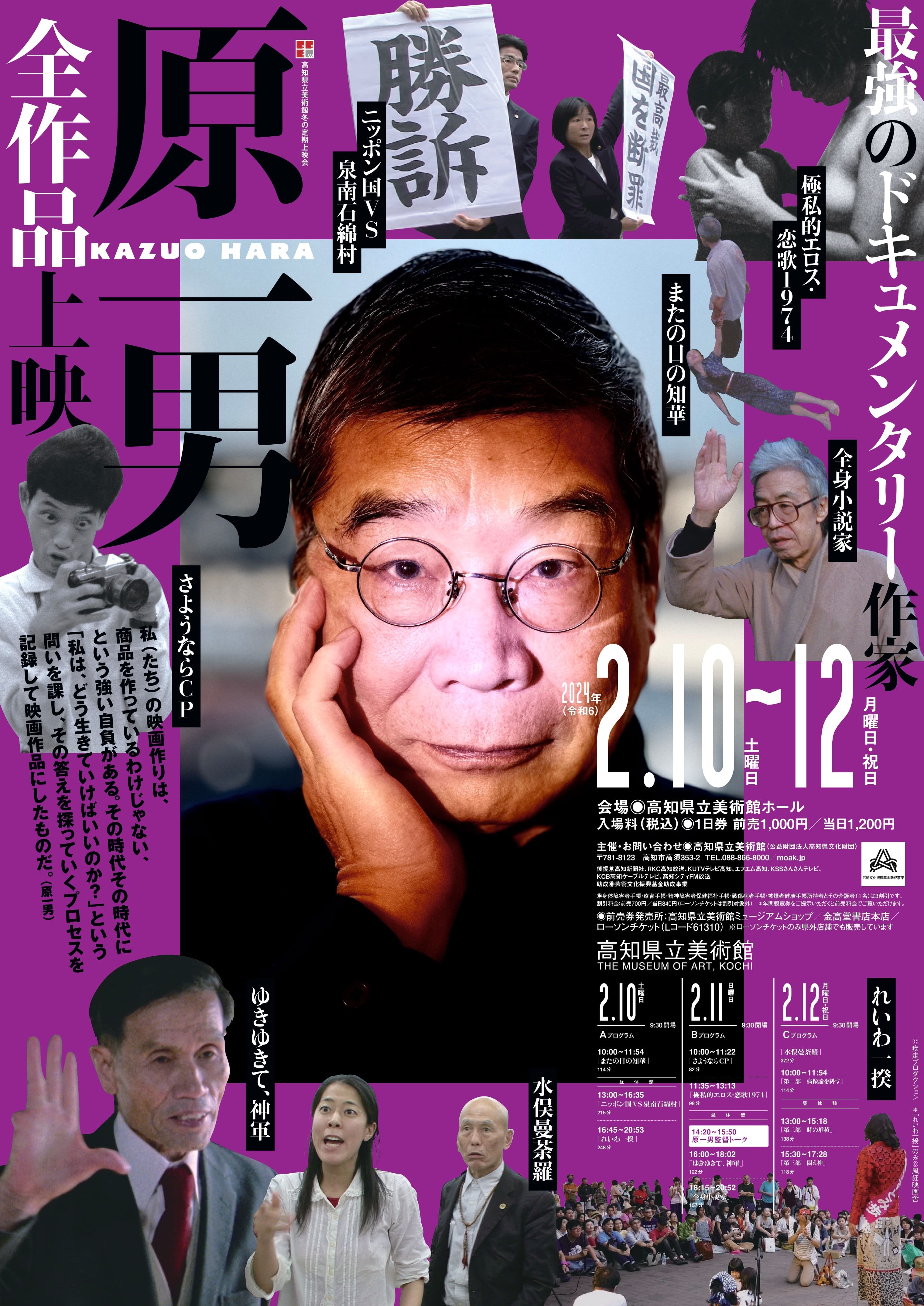
PAST
Winter Screening
HARA KAZUO
The Invincible Documentalist
Sat. 10 Feb. 2024 - Mon. 12 Feb. 2024
Schedule: Saturday 10 - Monday, Holiday 12 February 2024
Venue: The Museum of Art, Kochi - Museum Hall
Admission (tax incl.): *Tickets are valid for one program per day only.
Advanced Sale: 1,000Yen / At Door: 1,200Yen
*Concessions (30% discount) offered to visitors with a certificate of physical/mental/intellectual disability, war-disabled or A-bomb victim, and 1 accompanying care person. Please show the valid certificate at box office. (Tickets purchased through Lawson Ticket are not eligible for discounts.)
The Museum of Art, Kochi - Museum Shop
Koshin Play Guide
LAWSON TICKET
Organized by The Museum of Art, Kochi (Kochi Prefecture Cultural Foundation)
Films and distribution by Shisso Production, Inc., Fukyo Eigasha
Nominal support by The Kochi Shinbun, Kochi Broadcasting Co., Ltd., TV Kochi Broadcasting Co., Ltd., FM Kochi, Kochi SUN SUN TV, Kochi Cable Broadcast, Kochi City FM
Program
"I (we) take strong pride in the fact that our filmmaking is not about producing a film. My films document the process of asking the question "How should I live my life?" at that particular time and age, and the process of searching for the answer to this question is documented and made into a film work". - Kazuo Hara
A total of eight films - all films screened at cinema venues by documentary filmmaker genius Kazuo Hara will be screened from his shocking debut film Goodbye CP, through the controversial film Yuki yukite, shinigun, to the six-hour-plus epic Minamata Mandala, which depicts the current situation of Minamata disease.
Take this opportunity to see the entire body of work of director Kazuo Hara.
A talk by Director Hara will be held on the afternoon of 11 February (Sun).
10 Feb (Sat) - Programme A *One-day ticket.
10:00-11:54
The Many Faces of Chika (またの日の知華, Mata no Hi no Chika) *fictional film
2004 / 114 min / Colour / Blu-ray
Cast: Takami Yoshimoto, Makiko Watanabe, Kumiko Kim, Kaori Momoi, Minoru Tanaka, Seiichi Tanabe, Isao Natsuyagi, Hidetaka Yoshioka
Set in the turbulent 1970s, the film depicts the heroine Chika's love and life with four men she meets. The film, the director's first and only feature film, is divided into four chapters, with different actresses playing the heroine Chika in each chapter, because each man sees a different image of women. Hara Kazuo's outstanding idea shines through.
Highlights as described by the director - Kazuo Hara's first feature film. A ground-breaking technique in which one heroine is played by four actresses. A tragic film that was so groundbreaking that it ignored both audiences and critics and was the lowest-grossing pro-extreme film of all time.
- Lunch break -
13:00-16:35
Sennan Asbestos Disaster (ニッポン国VS泉南石綿村, Nippon-koku vs Sennan Ishiwata Son)
2017/215 mins/colour/DCP
The Sennan area in the southernmost part of Osaka Prefecture. This documentary film follows eight years of asbestos (asbestos; totally banned since 2006) state compensation litigation there. The Sennan area has flourished in the asbestos industry since the Meiji era (1868-1912) and at its peak was known as the 'Asbestos Village' with more than 200 factories concentrated in the area. Inhalation of asbestos causes lung cancer after a long incubation period. The film documents the court battles and the human condition, and has won awards at the Pusan International Film Festival, Yamagata International Documentary Film Festival and Tokyo FILMeX.
Highlights as told by the director - In a land where it is unthinkable for ordinary people to challenge the authorities, a family witnessing the horrific death of a family member due to asbestos starts a court battle. At first, they were a little afraid of the authorities, but gradually became angry when their requests were not listened to, and grew to realise that the happiness of the common people could not be achieved except by fighting against the authorities.
16:45-20:58 *There is a five-minute break in the middle of the film.
Reiwa Uprising (れいわ一揆, Rei wa ikki)
2019 / 248 mins / Colour / Blu-ray
This documentary follows the election campaign of the unique candidates of the 'Reiwa Shinsengumi', who attracted attention in the 2019 House of Councillors elections. Particularly close to them was Ayumi Yasutomi, a professor at the University of Tokyo. Yasutomi is a man but is known for his female attire. Yasutomi embarks on a nationwide tour as a candidate for proportional representation. The film follows the election campaigns of ten candidates from the 'Reiwa Shinseigumi', with a focus on Yasutomi, who rides a horse and makes speeches.
Highlights as described by the director - This film is not a PR film for the Reiwa Shinsengumi, although the camera focuses on the ten candidates of the Reiwa Shinsengumi at the time. It is a record of the boom that occurred as if by miracle, as many voters were attracted by the slogan of the time, "Bringing the parties to Parliament". Another highlight of the film is that the candidates appeal to voters through their words, and we wanted to recapture the 'power' of words to move voters' hearts.
11 Feb (Sun) - Programme B *One-day ticket.
10:00-11:22
Goodbye CP (さようならCP, Sayōnara CP)
1972 / 82 min / B&W / Blu-ray
The first shocking film by director Kazuo Hara, CP (=Cerebral Palsy) is a disorder of motor functions caused by brain damage. This film captures the lives and thoughts of the people of the Blue Grass, a radical group of CP sufferers. The Blue Grass people actively expose their crippled bodies to the public, believing that a life of secrecy in a corner by themselves because of their disability is an acceptance of discrimination against the disabled.
Highlights as described by the director - Can documentary have the power to change reality = the world? The film is an unmistakeable statement of the power of documentary to change reality. CP is undeniably a monumental film that changed the structure of discrimination between able-bodied people and disabled people. The film's horrifyingly violent camerawork is also noteworthy.
11:35-13:13
Extreme Private Eros: Love Song 1974 (極私的エロス・恋歌1974)
1974 / 98 min / B&W / Blu-ray
This is an unprecedented documentary that reaches the ultimate in "extreme personalities" and became a controversial film that made Hara's name famous. Hara Kazuo travels to Okinawa in pursuit of his former live-in partner, who moved there with their child. The former live-in partner was an activist in the women's lib movement. She gives birth to a child by a black man she met there, which Hara 'captures' on camera literally. This is a documentary that shocked the world.
Highlights as told by the director - Director Martin Scorsese said after watching the film: 'No one has ever seen a film like this. No one has ever made a film like this", and it is the film that made the technique of self-documentary known to the world.
- Lunch break -
14:20-15:50 A Talk by director Kazuo Hara
*People with tickets or ticket stubs for 10-12 Feb may enter.
16:00-18:02
Yuki yukite, shingun (ゆきゆきて、神軍)
1987 / 122 min / Colour / Blu-ray
This is an astonishing documentary that shook the Japanese film industry. A radical man, Okuzaki Kenzo, who runs a business in Hyogo Prefecture, pursues ex-soldiers and former superiors one after another in search of the truth about the shooting of his men on the battlefield after the end of World War II. Kazuo Hara closely follows Okuzaki as he visits the homes of his former superiors without appointment to pursue his quest. Okuzaki's relentless pursuit reveals surprising truths about the war and the reality of the war. This controversial film became a social issue and was a huge hit when it was first released.
Highlights as described by the director - The biggest hit of Shisso Productions' career: when it was screened in New York, the N.Y. Times described it as a "kamikaze documentary". It destroyed the stereotypical image of the Japanese up to that point, saying "I've never seen Japanese people like this.
18:15-20:52
A Dedicated Life (全身小説家)
1994 / 157 min / Colour / Blu-ray
Cast: Inoue Mitsuharu, Hani Yutaka, Setouchi Jakucho, Noma Hiroshi
A masterpiece that won every Japanese film award in 1994. Documentary following the last five years of the life of writer Inoue Mitsuharu, known for works such as the novel The Swarm of the Earth. Despite being diagnosed with cancer, Inoue gave sharp criticism of the novels written by his students at the 'Literary Training School' which he ran, and gave lectures all over the country. After his death in 1992, Hara Kazuo visits Inoue's birthplace and gradually reveals the fictions about Inoue in his lifetime.
Highlights as described by the director - The film depicts the affair between Mitsuharu Inoue, his wife Ikuko and Jakucho Setouchi, but Yutaka Hani made him say that Jakucho was far more of a liar than the liar Micchan. More importantly, thanks for making us learn the essence of what 'fiction' really is, and it was voted one of the best of all 1994 fiction films, animations and documentaries.
12 Feb (Monday, public holiday) - Programme C *1-day ticket.
10:00-17:28
Minamata Mandala (水俣曼荼羅)
2020 / 372 min / Colour / Blu-ray
10:00-11:54 Part I: Denouncing the Theory of Illness (1h 54 mins)
- Lunch break -
13:00-15:18 Part II: Deposition of Time (2 hrs 18 mins)
15:30-17:28 Part III: The Agonising God (1h 58 mins)
Kazuo Hara, who says he made this film with the idea of "not forgetting Minamata", spent 20 years making this epic and lengthy romance. This epic film of over six hours documents the current situation of Minamata disease, one of the pollution diseases, in three parts. Six hours is a long time for a film, but compared to the long lives of Minamata disease patients, it can be called a moment.
Highlights as described by the director - It took me 15 years to shoot and five years to edit this film, which is the culmination of my work. I am proud to say that it is one of the best documentaries in Japanese documentary history, reaching an unprecedented level as an entertainment documentary film.
Hara, Kazuo
Born 1945 in Ube City, Yamaguchi Prefecture, Japan, Hara established Shippo Productions with Sachiko Kobayashi in 1972. Based on his experience working at a school for the disabled, he made his debut with 'Goodbye CP'. Her reputation grew with 'Kyokushiteki Eros Koika 1974' (Extremely Private Eros: Love Song 1974), which followed a former live-in partner. In 1987, he established an international reputation with Yukiyuki, Kamigun. The film is the pinnacle of documentary filmmaking, and continues to take on new challenges at a high level, such as 'A Dedicated Life' and 'Minamata Mandala'. http://docudocu.jp/
"I have been making documentaries for more than 50 years, but my (our) films have consistently portrayed the image of the common people resisting the top. And I can say that I am the protagonist (we are the one). Now I can say that if the common people want happiness and peace, they have no choice but to fight against the powers that be". - Kazuo Hara.

